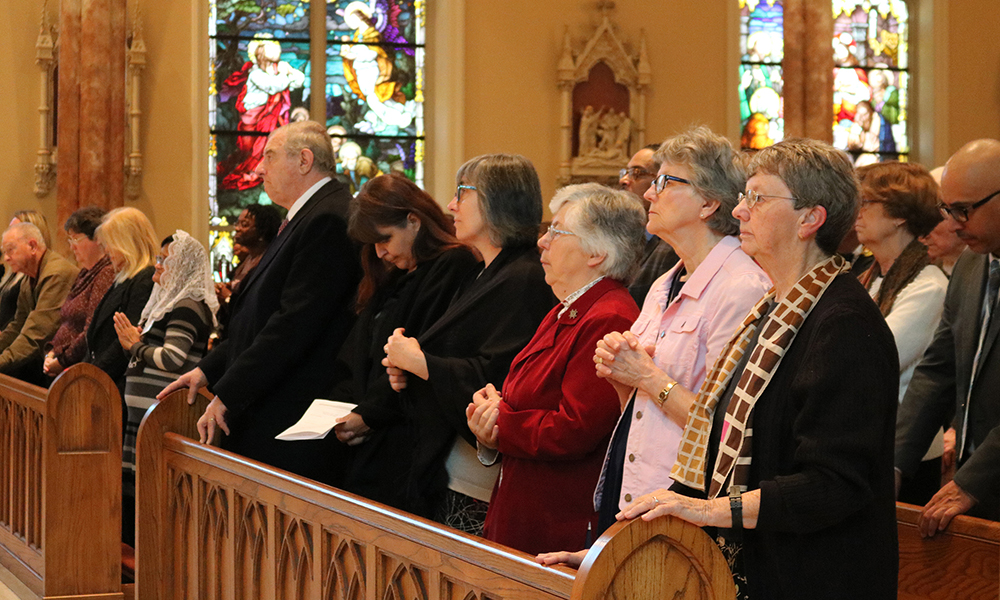Linguistically, the response “Blessed be God for ever” used at Mass translates the Latin Benedictus Deus in saecula. Benedictus, in Latin, literally means to speak well or favorably about some one or something (bene: well; dictus: say or speak). Hence, what we mean by “blessed” and the phrase “Blessed be God forever” is that “It is well that God should be forever praised.” We are not claiming to confer some sort of grace or favor upon God, as is often the meaning of the word “blessing” in English.
Theologically though we can distinguish between God’s intrinsic glory and his external glory. There is not one thing we can add or take from God’s intrinsic glory. He is glorious and blessed all by himself and has no need of our praise.
However, we can help to spread God’s external glory by our praise and acknowledgment of Him before others, as well as by reflecting His glory through lives of holiness, generosity and conformity to the truth. In this sense we can also understand the phrase “Blessed be God forever” to mean: “May God’s external glory and blessedness be extended and experienced in all places and times. May God be blessed (praised) everywhere and unto the age of ages.”

